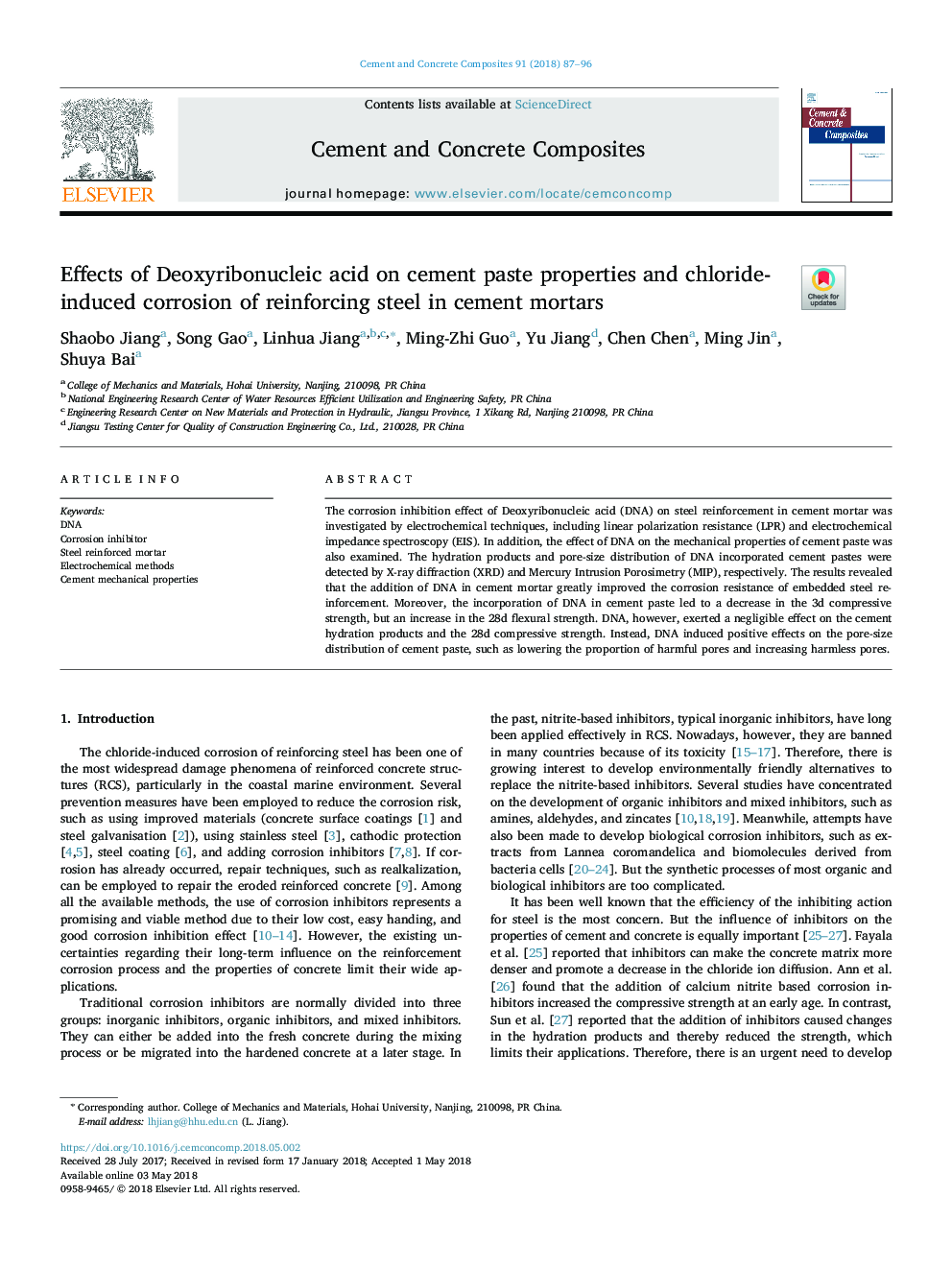| Article ID | Journal | Published Year | Pages | File Type |
|---|---|---|---|---|
| 7883634 | Cement and Concrete Composites | 2018 | 10 Pages |
Abstract
The corrosion inhibition effect of Deoxyribonucleic acid (DNA) on steel reinforcement in cement mortar was investigated by electrochemical techniques, including linear polarization resistance (LPR) and electrochemical impedance spectroscopy (EIS). In addition, the effect of DNA on the mechanical properties of cement paste was also examined. The hydration products and pore-size distribution of DNA incorporated cement pastes were detected by X-ray diffraction (XRD) and Mercury Intrusion Porosimetry (MIP), respectively. The results revealed that the addition of DNA in cement mortar greatly improved the corrosion resistance of embedded steel reinforcement. Moreover, the incorporation of DNA in cement paste led to a decrease in the 3d compressive strength, but an increase in the 28d flexural strength. DNA, however, exerted a negligible effect on the cement hydration products and the 28d compressive strength. Instead, DNA induced positive effects on the pore-size distribution of cement paste, such as lowering the proportion of harmful pores and increasing harmless pores.
Related Topics
Physical Sciences and Engineering
Engineering
Industrial and Manufacturing Engineering
Authors
Shaobo Jiang, Song Gao, Linhua Jiang, Ming-Zhi Guo, Yu Jiang, Chen Chen, Ming Jin, Shuya Bai,
